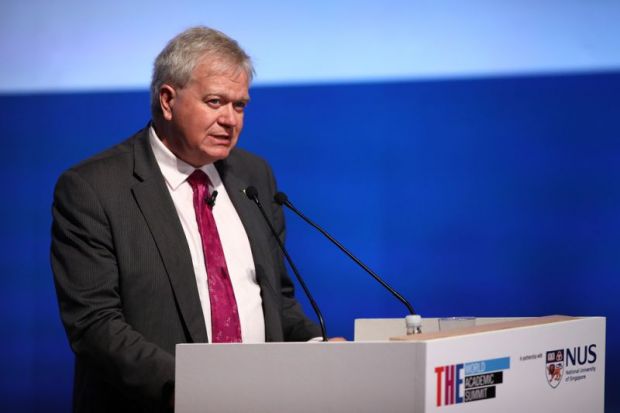The world’s only Nobel laureate university leader may never have moved to Australia if its current visa processing delays had prevailed in the 1990s, a forum has heard.
Brian Schmidt said it had only taken four days to secure a visa to work in Australia when he and his wife considered their options 29 years ago, after graduating from Harvard University.
“In the end, it was the ability to get a high-quality job and being able to reliably get living and working rights for both of us that made the decision for us to move to Australia,” Professor Schmidt, now vice-chancellor of the Australian National University (ANU), told the Jobs and Skills Summit in Canberra.
“It was our choice over the United States, Canada, the UK and Europe because it was the best place for us.”
That “low-friction environment” no longer exists, with foreign academics now waiting much longer for their visas. Staff appointed from India, for example, were forced to wait an average of 21 months for permission to enter Australia to take up three-year positions at ANU recently.
Professor Schmidt said few recruits were prepared to tolerate such delays. “The people we lost were skilled in areas of national importance in quantum physics and cyber and security studies and biomedical or computer science, just to name a few.
“I need to recruit the best and brightest from around the world. If you want to attract top talent, these people have global options.”
The government has vowed to reduce waiting times and has committed A$36 million (£21 million) to boost visa processing staff numbers. “I’m sure a lot of us are sitting here thinking, would the young Brian Schmidt of today ever have made it here?” home affairs minister Clare O’Neil told the summit.
“If the answer to that question is no, then we are definitely doing something terribly wrong.”
Meanwhile, the University of Melbourne said it was also encountering “massive delays” in the processing of visas for the foreign doctoral candidates who constituted 40 per cent of its research workforce.
Deputy vice-chancellor Michael Wesley said the opportunities for “incredibly bright” doctoral candidates from countries such as China, India and Iran were not limited to Australia. “You’re going to go to a British university, an American university, a Chinese university, a Singaporean university,” he told the Australian Financial Review Higher Education Summit in Sydney.
“And that’s what they’re doing. We are buying ourselves a major drop in our research capacity through being completely opaque.”
Professor Wesley said he had the home affairs department on “speed dial” as he chased up half a dozen visa delays every fortnight. “I can almost quote verbatim the responses I’m getting back from Home Affairs: ‘We’re still working on it. We can’t tell you why. We can’t give you a time frame.’ What are we expected to say to these incredibly bright students?”
Representative group Universities Australia said it had surveyed its members and found that one in five overseas students were waiting on visas. Chief executive Catriona Jackson said the “fairly understandable post-coronavirus crunch” in visa processing resources should have been anticipated and resolved.
Students have “no idea where they are in the process”, Ms Jackson told the Sydney forum. “They’re just not going to cop it. They’re just going to go somewhere else.”
Register to continue
Why register?
- Registration is free and only takes a moment
- Once registered, you can read 3 articles a month
- Sign up for our newsletter
Subscribe
Or subscribe for unlimited access to:
- Unlimited access to news, views, insights & reviews
- Digital editions
- Digital access to THE’s university and college rankings analysis
Already registered or a current subscriber? Login










